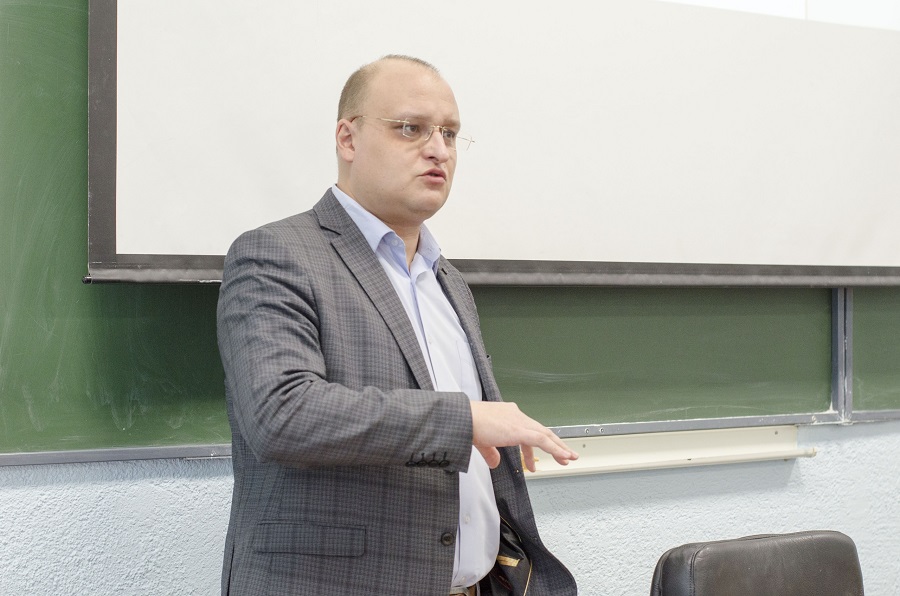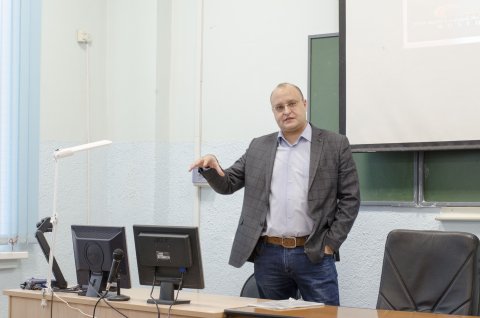This academic year, SUSU Department of Russian and International History of the Institute of Media, Social Sciences and Humanities has turned a new page in its chronicles. To fulfil the competitive growth program, a project for elite training of students was organised. Aiming at individual approach in learning and diving into the world of science, this project will allow the future graduates of the university to lay the foundation for personal and professional development and increase the chances for successful career after graduation.
The main form of the elite training, which is proposed by the Department of Russian and International History, is the Methodological Workshop elective course, within which the leading scientists of the Ural region analyse the cutting-edge theories and practices of the modern humanities. Ksenia Margaryan from the Eurasian Studies Research and Education Centre presented a report within the framework of the first educational meeting on November 7, 2019. In her report on the Recent Studies in Archaeology, she emphasized the fact that the modern archaeology is closely connected with physical anthropology, a science which studies the physical organization of human body. Currently, such braches of the discipline as paleoanthropology, the study of the evolution of human physiology, and paleopathology, the study of diseases, are being actively developed. The students learnt about trace evidence methods in archaeology, allowing to examine the traces on ancient instruments of labour and determine their purpose of use.


The second meeting of the Methodological Workshop, on the contrary, brought the students back to the 21st century. Andrei Zakharov, Candidate of Sciences (History), Senior Research Fellow of the Chelyabinsk State University’s Laboratory of Digital Humanities Research presented a report on the topic of Digital History and Digital Humanities in the Russian Landscape, on November 21, 2019. The lecturer emphasized the prospects of this field and a special demand in it for scientists reconstructing the past within the path of public history. Above all, the presentation contained useful information on the state-of-the-art IT resources for researches in the field of Digital History and Digital Humanities.
Sergey Bakanov, Doctor of Sciences (History), Head of the Chelyabinsk State University’s Department of Russian and International History closed the 2019 educational course and introduced students to the main branches of economic history and historical urban studies.

To master the basics of the future profession, the elite students are invited to continue their participation in the Methodological Workshop, which will be held as a number of master-classes under the guidance by doctors and candidates of sciences (History) during the second semester. The pedagogical experiment of the second half of the year will be the course on the Basics of Academic Writing by Yulia Khmelevskaya, Candidate of Sciences (History) and a scientist with international experience and practical knowledge of the English language. During the third and fourth years of studying, the program will also comprise additional disciplines in the English language: 5th semester: Academic Communication; 6th semester: Academic writing; 7th semester: Participation in the Work of International Scientific Conferences; 8th semester: Preparation and Defence of the Graduation Qualification Work in English.
During this semester, the Department of Russian and International History opens the elite training program with the master-class by Igor Narskiy, Doctor of Sciences (History), Professor and Staff Member of the Centre for Cultural Studies. He will introduce students to the topic of Invention of “Russian Birch” in the USSR: Case on the History of the Soviet Nation-Building. The meeting will be organized at Room 442, SUSU Main University Building on March 19th at 15:20.




